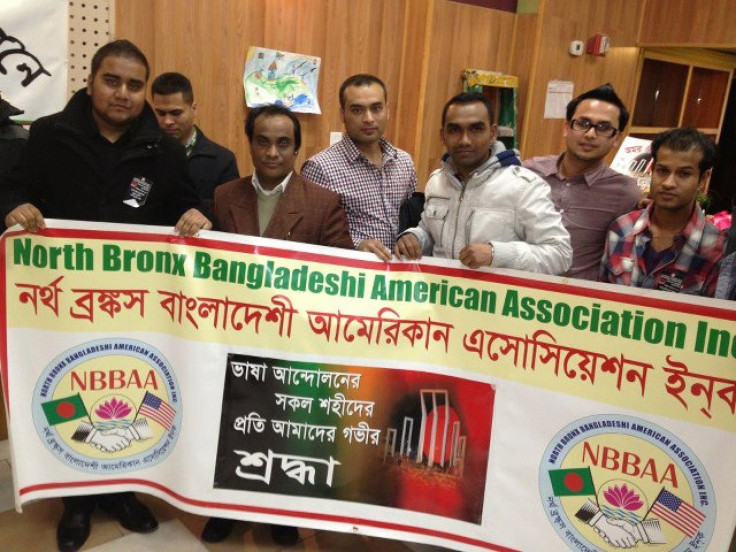A New Bronx Tale: Bangladeshis Growing Presence In The Borough Creates Hope And Conflict

The recent assault on a Bangladeshi man in the Bronx by a group of up to four Hispanic males may reflect growing tensions between this new South Asian community and the other longer-established ethnic enclaves in the borough.
Abdullah Faruque, 30, who was born in Bangladesh and grew up in the Bronx, was having dinner Monday at a local restaurant when three or four Hispanic men, apparently seeking revenge for the Boston Marathon bombings earlier in the day, attacked him, the New York Post reports. (Presumably, they had already ascertained that the Boston blasts were perpetrated by Arabs or Muslims).
The tabloid said four men viciously beat Faruque, while shouting “f--king Arab” at the Bengali man, as he stepped out of an Applebee’s restaurant on Exterior Avenue in Melrose, for a smoke.
Bangladeshis are now the largest Asian-born ethnic group in the Bronx, creating both opportunity and new conflicts.
Starling Avenue, in the Parkchester neighborhood of the Bronx, has become the center of Bangladeshi life in the borough, with many stores and restaurants catering to Bengalis, according to the Bronx Ink, an online news site that covers the neighborhood.
Bangladeshis started arriving in the U.S., and in particularly New York City, in significant numbers in the early 1990s, after the government opened a new "visa lottery system," which permitted arrivals from some Asian countries that had previously found it difficult to move here unless they had advanced math or science degrees.
Most of the first Bangladeshis settled in Astoria and Jackson Heights in Queens, and Kensington in Brooklyn. By the new century, as property prices rose, many of them moved to the East Bronx, attracted by cheaper rents.
There were more than 4,000 Bangladeshis in Parkchester – up from just 10 families in 1991, according to 2009 Census Bureau data. On the whole, more than 8,000 Bangladeshis now call the Bronx home.
“In the last few years, [the Bangladeshi community] growing pretty quickly,” said Mohammed Islam, president of the Bronx Bangladesh Society, in an interview with the local news site.
“The rent is expensive elsewhere, so people are coming from Parkchester and Queens over there, because of relatives and family members,” he said.
The local mosque in Parkchester, Jame Masjid, is dominated by Bangladeshis, and attracts as many as 1,500 worshippers, to Friday services.
Norwood, in the northwestern part of the Bronx, also has a growing Bangladeshi community.
“For the last decade, the number of ethnic Bangladeshi’s have been constantly growing” local businessman, Alhaj Solaiman Bhuyan, told Voice of NY, an online website.
“A number of groceries have set up shops where Bangladeshi goods are available and the area has Bangladeshi restaurants," he said. "Walking through the streets, one can easily smell the aroma of Bangladeshi foods in the air. The area has easy subway connection to the city center, which may be a possible reason for the increased eagerness of Bangladeshis to come and settle here.”
As their community has expanded in the Bronx in recent years, Bangladeshis, and their apparent economic success, have also sparked resentment and even violence, allegedly from the black and Hispanic communities that have long resided in the borough.
Several incidents of assault and verbal abuse against Bangladeshis have been reported.
“Many in the [Bangladeshi] community feel there is racial jealousy going on towards us,” local businessman, Zakir Khan, told the Bronx Ink.
“They feel we’re easy targets because we’re peaceful, many don’t speak a lot of English and we’re not known to fight back.”
Following a spree of hate crimes in late 2010 against Bangladeshis, State Sen. Ruben Diaz, who represented the Bronx, highlighted the incidents of racial violence directed at them.
“We are calling on the police department to pay attention to this area and to issue more police force to this area,” he said, at a news briefing.
Bronx community organizer, Luis Sepulveda, said at the news conference, “We have seen a rise in crimes that are targeting people because of their ethnic background and their religion.
"Just like any other members of the community, [the Bangladeshis] deserve to feel safe when they walk the streets where they live. Many of them are now fearful, because they were targeted. And so it is necessary that the community and the police department establish an environment that people are safe to walk throughout this community.”
Bimal Chanda, 59, was beaten to death by two men in his apartment building in the Fordham section of the Bronx in November 2011, in what was believed to be a possible hate crime. The attackers didn't take his wallet that was filled with cash, reports said.
As the Bangladeshi, and the overall Asian population, increases in the Bronx, they're likely to seek some political clout.
Mohammed Mujumder, an attorney and longtime Bronx resident, may run for City Council in 2013. If he wins a seat, he will be the first Bangladeshi to hold political office in New York City.
© Copyright IBTimes 2024. All rights reserved.











